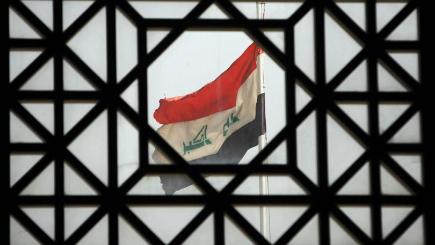-
Tips for becoming a good boxer - November 6, 2020
-
7 expert tips for making your hens night a memorable one - November 6, 2020
-
5 reasons to host your Christmas party on a cruise boat - November 6, 2020
-
What to do when you’re charged with a crime - November 6, 2020
-
Should you get one or multiple dogs? Here’s all you need to know - November 3, 2020
-
A Guide: How to Build Your Very Own Magic Mirror - February 14, 2019
-
Our Top Inspirational Baseball Stars - November 24, 2018
-
Five Tech Tools That Will Help You Turn Your Blog into a Business - November 24, 2018
-
How to Indulge on Vacation without Expanding Your Waist - November 9, 2018
-
5 Strategies for Businesses to Appeal to Today’s Increasingly Mobile-Crazed Customers - November 9, 2018
Colombia agrees to reduce attacks against the Farc
Colombia has agreed to scale down military action if the guerrilla group known as the Revolutionary Armed Forces of Colombia suspends all attacks.
Advertisement
Peace talks between Colombia and the Marxist guerrilla organization FARC, which have been taking place for over two years in Havana, have been going badly.
Colombian President Juan Manuel Santos wrote, in Spanish, on his Twitter account: “We appreciate the gesture of a unilateral ceasefire by the FARC, but more is needed, especially concrete commitments to speed up the negotiations”.
“We reaffirm our decision to relinquish weapons”, FARC representative Ricardo Tellez said on Thursday.
The government and the FARC have also asked for a UN delegate and representative from the Union of South American Nations to help start discussions on monitoring the end of the half-century conflict.
The aim of the plan is to “strengthen the confidence of Colombians in the peace process” as well as between the negotiating delegations, facilitate the shaping of agreements on the outstanding points on the roadmap governing the talks and create the conditions for a bilateral and definitive cease-fire.
A Farc ceasefire was called in December, but clashes resumed in April with the killing of 11 soldiers and subsequent bombing raids on rebel positions. Marquez said no one could hide the fact that government and FARC had reached three partial agreements, were drafting a new agreement on victims and that the de-mining of certain territories of ordinance and other unexploded devices was underway.
The talks in Havana are aimed at ending more than 50 years of conflict.
During that truce, government forces stepped up attacks on rebel camps, the FARC alleges.
The armed strife in Colombia dates back to 1964, and has involved drug gangs and right-wing paramilitaries as well as the radical leftist FARC.
Advertisement
Since that truce ended, about 30 rebels have been killed in army operations and recent surveys show the public is increasingly wary about the peace process.





























